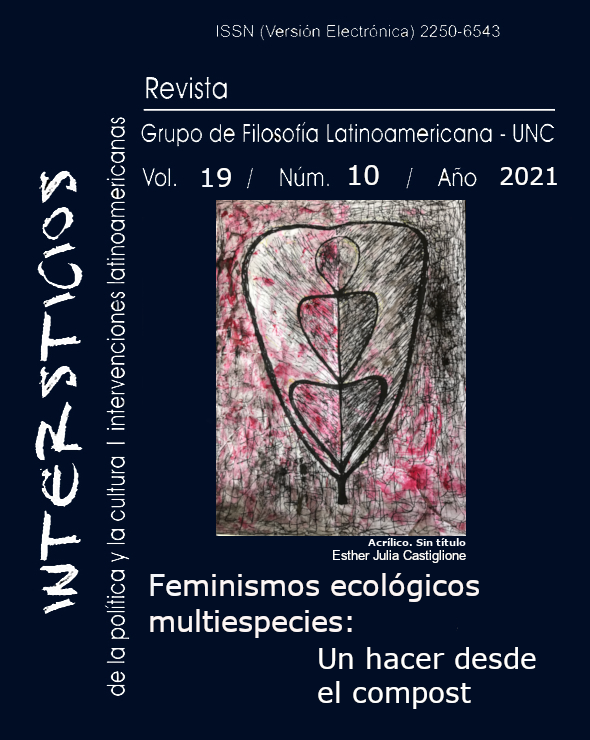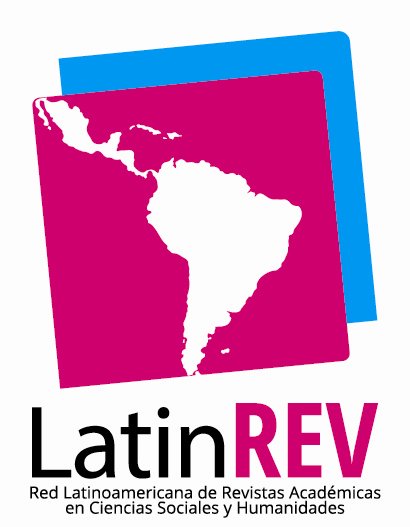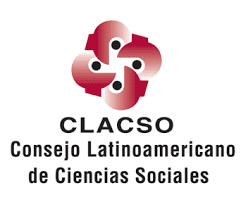An essay on (dis)colonization in education. Fatalism and the other modernity
Keywords:
decolonization, education, fatalism, otherness, modernityAbstract
Based on two teaching experiences, we focus on the investigation of the possible causes of a very recurrent attitude in undergraduate and graduate students at the university: fatalism (a category proposed by Ignacio Martín-Baró). This is understood as a vital attitude and subjective way of thinking and facing reality, based on indolence and the conviction of the impossibility of change and transformation of the prevailing status quo. We argue that fatalism is, in our days, a mark of subalternity and otherness, defining the condition of the subject colonized by capitalism in its neoliberal fold, thought in our South American context.
Then, we trace back some proposals of Aníbal Quijano, Michel Trouillot and Suely Rolnik who provide us with elements to think about the construction of a subjectivity designed to submerge and sustain us in fatalism, in an unconscious conviction of the impossibility of change: it is not only the reproduction of the material conditions of existence and the concomitant subjective experience that change is impossible that causes fatalism, but these structural conditions are accompanied complementarily by a superstructural design that leads to the construction of a fatalistic subjectivity. And there, the mass media and, above all, formal education (perhaps designed by the colonists enunciated by Fanon) are decisive.
We drink again in the source of Simón Rodríguez to think about the possibility of the abysmal step between independence and freedom, the necessary continuity of the ephemeral material victor of the militia in persistent militiaman of thought. Also, to imagine a second birth in the womb of education, where each and every one of the subjectivities come to harbor the knowledge of their own contradiction and the way to appropriate it.
Downloads
References
Álvarez, R. (2020). La Audiencia condena al ex coronel Montano a 133 años de prisión por ordenar la matanza de Ellacuría y los jesuitas en El Salvador como "terrorismo de Estado". Madrid: Diario El Mundo.
https://www.elmundo.es/espana/2020/09/11/5f5b402ffdddff60288b45d2.html
Césaire, A. (2006) (Original: 1950). Discurso sobre el colonialismo. Madrid: Ediciones Akal.
Castro Gómez, S. (2000). Ciencias sociales, violencia epistémica y el problema de la "invención del otro". En: Lander, Edgardo (coomp.) La colonialidad del saber: eurocentrismo y ciencias sociales. Perspectivas latinoamericanas. Buenos Aires: CLACSO.
De Sousa Santos, B. (2009). Una epistemología del sur: la reinvención del conocimiento y la emancipación social. México: Siglo XXI-CLACSO.
De Sousa Santos, B. (2010). Descolonizar el saber reinventar el poder. Montevideo: Trilce-Extensión Universitaria Universidad de la República.
Dussel, E. (2007). Política de la liberación. Historia mundial y crítica. Madrid: Editorial Trotta.
Grosfoguel, R. (2007). Descolonizando los universalismos occidentales: El pluri-versalismotransmodernodecolonial desde Aimé Césaire hasta los zapatistas. En: Castro-Gómez, S. y Grosfoguel, R. (ed.) El giro decolonial.Reflexiones para una diversidad epistémicamás allá del capitalismo global. Bogotá: Siglo del Hombre Editores. 63-78.
Escobar, A. (2015). Territorios de diferencia: ontología política de los “derechos al territorio”. Cuadernos de Antropología Social / 41, 25-38.
Fanon, F. (1983). Los condenados de la tierra. México: Fondo de Cultura Económica.
Freire, P. (2000). Pedagogía del oprimido. México: Siglo XXI Editores.
Habermas, J. (1988). La modernidad, un proyecto incompleto. En: Foster, Hal (1988), La posmodernidad. Barcelona: Kairós.
Harvey, D. (2004). El ‘nuevo’ imperialismo: acumulación por desposesión. Socialist Register, 99 – 129.
Kohan, W. (2016). El maestro inventor. Simón Rodríguez. Caracas: Ediciones del Solar.
Lander, E. (2000). Ciencias sociales: saberes coloniales y eurocéntrico. En: Lander, Edgardo (coomp.) La colonialidad del saber: eurocentrismo y ciencias sociales. Perspectivas latinoamericanas. Buenos Aires: CLACSO.
Latour, B. (2007). Nunca fuimos modernos. Ensayos de antropología simétrica. Buenos Aires: Siglo Veintiuno Editores.
Martín-Baró, I. (1988). Psicología de la liberación. Madrid: Editorial Trotta.
Martín-Baró, I. (1989). Sistema, grupo y poder. Psicología Social desde Centroamérica (II). El Salvador: Uca Editores.
Quijano, A. (2007). Colonialidad del poder y clasificación social. En: Castro Gómez, S. y Grosfogel. R. El giro decolonial. Bogotá: Siglo del Hombre Editores.
Modonesi, M. (2010). Subalternidad, antagonismo, autononía: marxismos y subjetivación política. Buenos Aires: CLACSO-Prometeo Libros.
Ramallo, F. (2017). Pedagogías descoloniales en la didáctica de la historia. Estudios de Filosofía Práctica e Historia de las Ideas/ Vol. 19.
Rodríguez, S. (2015) (Original: 1842). Sociedades Americanas. Ciudad Autónoma de Buenos Aires: Urbanita.
Rolnik, S. (2019). Esferas de la insurrección. Apuntes para descolonizar el inconsciente. Ciudad Autónoma de Buenos Aires: Tinta Limón.
Rozitchner, L. (2012). Filosofía y emancipación. Simón Rodríguez: el triunfo de un fracaso ejemplar. Buenos Aires: Biblioteca Nacional.
Thomas, W. (2005). La definición de la situación. CIC (Cuadernos de Información y Comunicación), 2005, 10, 27-32.
Trouillot, M. (2011). Una historia impensable: la revolución haitiana como un no-evento. Antropologia Política 2 (8G)8, 351-396.
Trouillot, M. (2011). Moderno de otro modo. Lecciones caribeñas desde el lugar del salvaje. Tabula Rasa, Bogotá-Colombia, Nro. 14: 79-97.
Vargas Castro, A. (2016). Profecía autocumplida o los dos tiempos de la verdad. Desde el Jardín de Freud, N° 16, Enero-Diciembre 2016, 63-75.
Wallerstein, I. (2007). Universalismo europeo: el discurso del poder. México: Siglo XXI.
Zaffaroni, E. (2015). El derecho latinoamericano en la fase superior del colonialismo. Passagens. Revista Internacional de História Política e Cultura Jurídica Rio de Janeiro: vol. 7, no.2, maio-agosto, 2015, p. 182-243.
Downloads
Published
How to Cite
Issue
Section
License

This work is licensed under a Creative Commons Attribution-NonCommercial-ShareAlike 4.0 International License.
Authors who have publications with this journal agree to the following terms:
a. Authors will retain their copyright and grant the journal the right of first publication of their work, which will simultaneously be subject to the Creative Commons Attribution License that allows third parties to share the work as long as its author and first publication in this journal are indicated.
b. Authors may adopt other non-exclusive license agreements for distribution of the published version of the work (e.g., deposit it in an institutional telematic archive or publish it in a monographic volume) as long as the initial publication in this journal is indicated.
c. Authors are allowed and encouraged to disseminate their work through the Internet (e.g., in institutional telematic archives or on their web page) after the publication process, which may produce interesting exchanges and increase citations of the published work (see The effect of open access).










